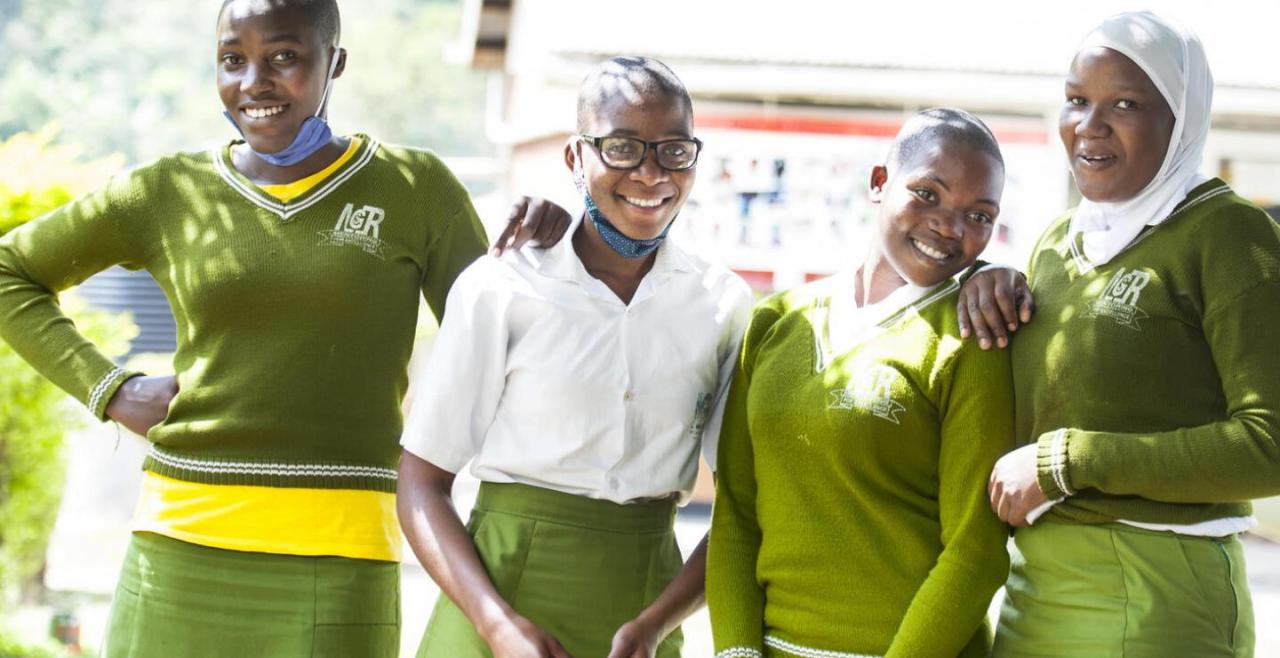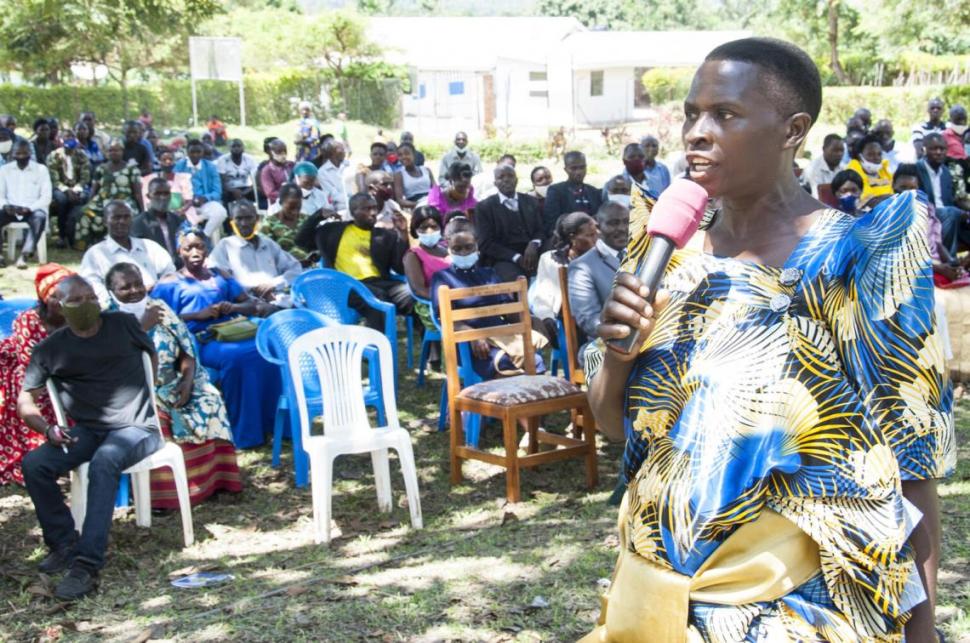Shocking statistics indicate a positive new trend in Uganda

BUGOYE, Uganda - The data on gender-based violence (GBV) and child abuse coming out of Bugoye does not look good. One of the 44 sub counties that make up the large, mountainous district of Kasese in western Uganda, Bugoye shows a high incidence of violence against women and girls.
Kasese Deputy Chief Administrative Officer (CAO) Senku Samwiri Kimuli admits that the statistics are terrible - but for him, these unpleasant reports indicate a positive new trend.
“These things have been happening here from time immemorial," he said. "But because of the awareness [of violence] that has been created under the Spotlight Initiative, people are now reporting and seeking justice."
The Spotlight Initiative is working hand in hand with civil servants and social workers to both record and respond to gender-based violence.
“These things have been happening here from time immemorial... but people are now reporting and seeking justice." - Kasese Deputy Chief Administrative Officer Senku Samwiri Kimuli
Because of community sensitization on the rights of women and girls, survivors of abuse are less likely to be treated like offenders or punished for what happened to them. In the recent national school examinations, 92 girls sat for their Ordinary level certificate while pregnant. For the Primary Leaving Exams, 60 pregnant candidates took part. Just a few years ago, it would have been unthinkable for pregnant women or new mothers to continue their educations. Today, they are encouraged to return to school and pursue their dreams.
“The situation is bad, but it was worse a couple of years back,” said top civil servant in the region, sub-county chief Stephen Kabau. “Bugoye is not a poor area, I think the people here have a higher income than the average Ugandan. But I think alcohol has something to do with [GBV issues] and we are tackling the problems head on.”
Integrating gender sensitization into everyday life
Since he came to Bugoye just over a year ago, Mr. Kabau has instituted a radical policy to address gender-based violence and rape. All public gatherings - whether social, political or administrative - must include an address by a para-social worker about GBV. To ensure that the message isn't lost on tired audiences, Mr. Kabau has directed that the address be given at the start of the agenda, before people become fatigued.
“The situation is bad, but we are tackling the problems head on.” - Sub-County Chief Stephen Kabau
Recently, a para-social worker from Muhambo Parish, Ithungu Jonesi, took the microphone before the new sub-county councillors were sworn in before the chief magistrate. She reminded the gathering about the need to watch out for signs of abuse in their neighbourhood, how to help those affected and above all, to report to people like her who can link suvivors with the appropriate channels for justice and support. She finished by sharing her phone number with the crowd.
After the address, Ms. Jonesi left early - duty called. “I have to catch up with several other gatherings to preach the message of preventing gender-based violence or reporting it when it occurs,” she said, before hailing a boda boda to her next engagement.
By Joachim Buwembo. Originally published on UNICEF.

